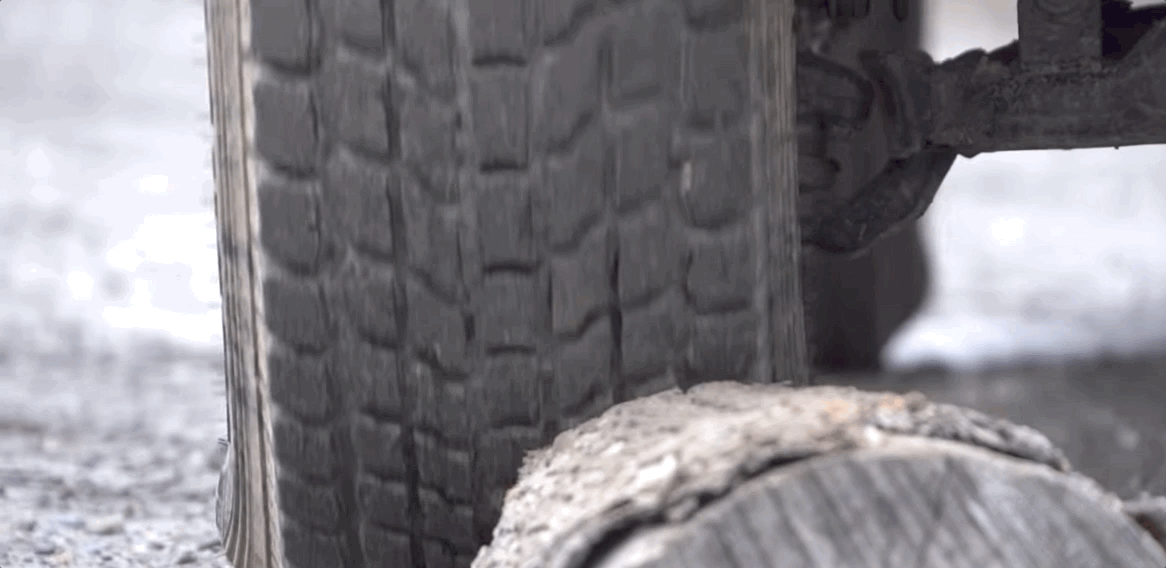How Best To Air Down Your Tires When You're Off-Road
We generally think of underinflated tires as a bad thing, as it can wear out your tires more quickly on pavement and cost you fuel mileage. Off-road, it's a whole different story, and in many, if not all, situations you'll want some measure of underinflation. Just how much depends on what you're doing, as Team O'Neil explains.
As Wyatt Knox of Team O'Neil says in this video, it's all kind of relative. What he calls street pressure—or the tire pressure you should have your tires inflated to for pavement—is for high speeds. High pressure, high speeds. Airing down your tires for off-road is for the opposite. Low pressure, low speeds.
That's because you lower your tire pressure to get more rubber on the ground and increase grip, though in doing so you expose your sidewalls more than usual. And you only want to lower your tire pressure as much as you need to, which is to say a little bit (five psi, perhaps) if the terrain is mostly dirt, a little bit more (10 psi, perhaps, or tire pressure in the mid-20s) if the terrain is rockier, and a lot more (to between 15 and 20 psi total) if you're going over highly rocky terrain, or more extreme and slower situations.
That lowest range will help prevent sharp objects from piercing your rubber. It is also the emergency range, if you're off-road—and perhaps haven't aired down your tires at all—and you feel yourself starting to get stuck. You can hop out, take your tire pressure down, and immediately get more grip.
You'll also have to weigh the drawbacks of less tire pressure, of course, which include a lower ride height and less capacity for any cargo or humans you pick up along the way. But it's air pressure, meant to be adjusted, and Wyatt recommends getting a feel for your own tires, as they can be different. (Those psi numbers above, for example, are hypothetical, but give you a good range of where most tires will be.)
One big argument for properly airing down your tires off-road, in any case? If you have more grip, you'll tear up the trail less, preserving it better for those who may drive through after you. Or maybe just preserving it better for you when you go through next time. A win in either case.
